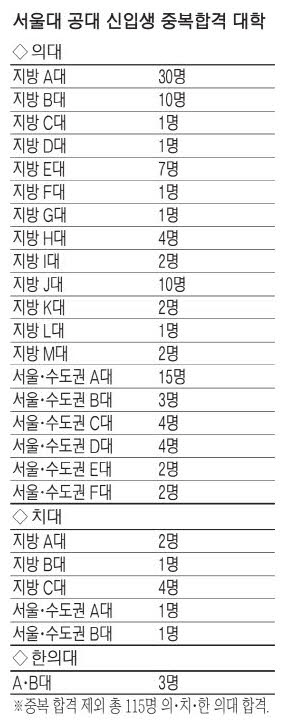Department News
[The Korea Economic Daily] Spirited Challenge from the Freshmen of SNU Engineering “Engineering as a backup? Engineering Instea
Spirited Challenge from the Freshmen of SNU Engineering “Engineering as a backup? Engineering Instead of Medicine!”<?xml:namespace prefix = "o" ns = "urn:schemas-microsoft-com:office:office" />
Wide variety of careers as an advantage … From researcher to venture startups, and even finance.
Already a preference in US and China … US top 20 income and excellent students from China flocks.
◆ The signal for the revival of Engineering ◆
Mr. Hong (32) who had enrolled in a in-Seoul private university’s Engineering faculty took the Korean CSAT the following year and re-enrolled in Medicine of a rural university. Despite being accepted to SNU Engineering, he decided walk a stable path and picked Medicine without hesitation. Picking Medicine regardless of school, which was the social atmosphere back then, was a doubtless choice. Mr. Hong who now works as a specialist in a in-Seoul college hospital said “Even if it was in a rural area, there were students retaking the CSAT 2~3 times just to get into medicine. I also chose medicine as a preparation for an uncertain future.
Between the 1970s and 1990s, the government invested heavily in heavy chemical industries, Semiconductors, Ship-building, Information Technology and others, bringing up the academic scores of the engineering faculties such as Mechanical, Electrical and Architecture, surpassing even the main Medicine faculties. It was such that at that time, Engineering in SNU, KAIST and POSTECH topped the college charts.
However, the Engineering golden age did not last long due to the 1997 IMF Financial Crisis. Companies fired the engineers first, pushing engineering employees onto the streets. The concept of lifetime-companies vanished and from 2000, excelling students flocked to Medicine, fueling the “Medicine Tempest”. The position of all medicine faculties filled before students applied to engineering and the social problem of “engineering avoidance phenomenon” began to show.
However, signs of this problem slowly changing has been showing up in recent years, following the survey held for freshmen of the SNU College of Engineering. Results showed that a significant number of students picked engineering over medicine, despite being accepted to both.
SNU Mechanical and Aerospace Engineering Professor Suk-Won Cha said “The Medicine preference in society seemed to be changing hence we decided to hold a survey for freshmen who have overlapping acceptances. It seems that the Medicine Preference phenomenon which took its hold from early to mid 2000s is beginning to change from 2008 onwards.
The ratio of top CSAT students applying to SNU Engineering to national medicine faculties has been showing similar changes for the past 5 years. In 2010, students accepted to medicine in rural areas has the top 1% of scores in the CSAT. However this year, the ratio of top CSAT students in SNU Engineering increased as opposed to medicine, which has shown a relative decrease.
Jong-no Sky Edu director of Evaluation Jong-un Oh said “Small changes are being detected. Compared to the past, preference of dentistry and oriental medicine has decreased significantly”.

The reason why engineering is appealing to top students is because MNCs and even finance companies have shown preference for engineering students recently.
Seung Bin Park, vice-president of KAIST, International Collaboration Chairperson of NAEK, said “Not only can engineering students get employment easily but cases of big money through technological development seems to have made students see engineering in a new light.”
Mark Zuckerberg, CEO of Facebook and Larry Page, CEO of Google were used as exams to show that engineering students could do a lot more than just become engineers.
Ji Seok Lee who enrolled in SNU Chemical and bio engineering despite being accepted to a prestigious private university’s medicine course said, “5~6 years ago, I would have definitely picked medicine but I picked engineering due to the variety of career choices available” Ju Heon Lee of SNU Electrical Engineering who was accepted with a top seat to a medicine faculty in Seoul back in 2012 said “I though coming to electrical engineering would give me a lot of various career choices.”
The “Engineering Preference phenomenon” has also been noticed in the US and China, due to the belief that a graduation from engineering gave a stable job and a high income. From the report uploaded by an American online supplier for information of wages “Pay Scale”, the top 20 for highest average income by faculty were all engineering faculties, with the first being Petroleum Engineering and the 2nd being Chemical Engineering.
Professor Suk Won Cha mentioned “The number of students going into engineering after their 2nd year in Stanford has cross the 50% mark. 5~6 years ago, that number was 20%.” A university rating agency the Chinese Alumni Network’s report released last year showed that there was a high percentage of top scorers of the Chinese entrance examinations selecting life sciences and computer science.
Engineering professors pointed out that to ensure excellent students continually have engineering as an option, the education system has to prepare to match reality. Rural medicine faculties on the other hand pointed out that they need a survival strategy to not lose excellent students. SNU Mechanical and Aerospace Engineering Professor Haecheon Choi said “We need an education system that can develop the creativity and problem solving abilities of engineering students. There is an urgent need to improve the quality of education to ensure excellent students can grow to be distinguished engineers “
[Journalist Ho Seop Won]Article http://news.mk.co.kr/newsRead.php?year=2015&no=250877
Related articles http://news.mk.co.kr/newsRead.php?no=250919&year=2015

